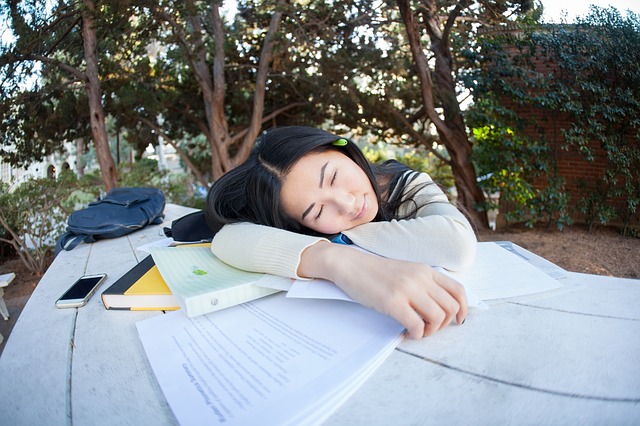Research Finds That High Schools Should Start Later
Photo Credit/ Photo Credit/Pixabay: Irina L.
December 4, 2019
Many people and communities have been arguing for years about the start time of schools. Many parents, teens, and researchers argue that teenagers who get up earlier than 9 a.m. effects their way of learning and functioning mentally and not in a good way. This is a problem that has been going on for decades. According to the American Academy of Sleep Medicine (AASM), middle and high school start times for school should start no earlier than 8:30 a.m.
According to Time Magazine, many doctors have reported that starting school earlier in the morning prevents children and teenagers from getting a full night’s sleep, which can affect their health, safety, and academic resources. For years, studies have suggested that later school starts can benefit adolescents and teens, whom scientists say are practically wired so stay up late and sleep in.
Part of the reason for sleeping in is that during this important period of time, children are starting to go through puberty. Their brains have begun producing the sleep-inducing hormone melatonin, making it more difficult for them to feel tired before 11 p.m. Research also suggests that delaying the start of the school day can reduce many accidents caused by sleepy teen drivers. A lot of accidents caused by teenagers have taken place mostly in the mornings. But that doesn’t necessarily mean that it will solve all of the student’s problems.
According to an article titled, “School Start Times,” published by Gale in Context, everyone has something in their bodies that represents their different sleep patterns. It is called, “The Body Clock”. This body’s sleep patterns are based on a biological process called circadian rhythm. Circadian rhythm tells us when to eat, sleep, and wake up. It is affected by many different factors, including the twenty-four-hour cycle of day and night, natural chemicals released by the body, and signals sent by the brain. The natural sleep cycle of younger children requires longer periods of rest.
Younger children are known to get tired earlier in the evening which leads them to go to bed at an earlier time. Again as children are entering puberty their circadian rhythm starts to shift. Meaning that teenagers get tired more later throughout the night and usually go to bed at around a later hour. The Brookings Institution, a research organization in Washington D.C. noted that schools with later start times recorded higher math and reading scores. In some areas, the number of car crashes involving teen drivers drooped a ton when start times were pushed back. Many schools have been working on and already have established later school start times.
According to a Harvard University study, scientists from the University of Washington are currently working with Seattle high schools to address this issue. The start times from two different high schools were moved 1 hour later (from 7;50 a.m to 8:45 a.m). Scientists found that a delayed school start time resulted in a 34 minute increase in the sleep duration; students went to sleep around the same time each night, but slept in longer. This was also associated with an increase in grades and attendance. This was definitely a big change for the schools and trying this experiment helped benefit a lot of schools in that area.
Hopefully, with the research, schools will make the change in their schedules and start school later. Tired high school students would sure appreciate it.


